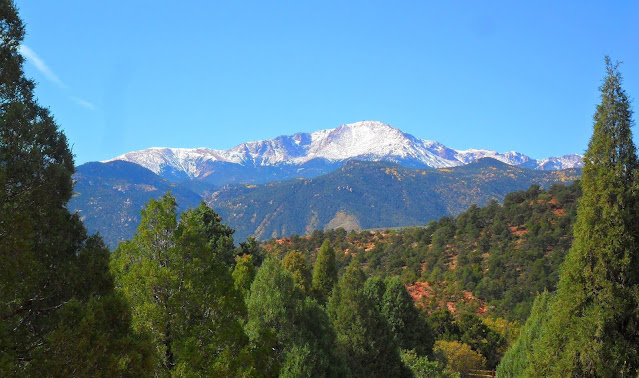Dunking of Baptist Preachers in Virginia (1778)
By: Joseph Loconte
"A wide-eyed and youthful James Madison, traveling in Culpeper County in Virginia, came upon a jail that housed half a dozen Baptist preachers, held simply for publishing their religious views. Madison bristled with indignation at the "diabolical Hell conceived principle of persecution." Writing to his friend William Bradford, he ended with a lament: "So I leave you to pity me and pray for Liberty and Conscience to revive among us..."
[While Madison's] role as the major architect of the Constitution is widely understood, his passion for securing religious freedom is not. "There is no principle in all of Madison's wide range of private opinions and long public career," writes biographer Ralph Ketcham, "to which he held with greater vigor and tenacity than this one of religious liberty."
Historians mistakenly ignore the importance of Madison's early education. Rather than going closer to home, he chose the College of New Jersey (later Princeton), an evangelical seminary known as both a citadel for republicanism and a haven for dissenting Presbyterianism. The influence of college president Rev. John Witherspoon--under whom Madison studied directly--is difficult to overstate. One of the assigned topics in Madison's senior year was to defend the proposition that "every religious profession, which does not by its principles disturb the public peace, ought to be tolerated by a wise state."
Madison's lifelong zeal for religious freedom began in May 1776 when state lawmakers wrote a new constitution for the newly independent Commonwealth of Virginia. The document contained a Declaration of Rights with a clause on religious liberty, penned by George Mason. The original clause declared that "all men should enjoy the fullest toleration in the exercise of religion, according to the dictates of conscience...."
Madison didn't like it. He objected to Mason's use of the word "toleration" because it implied that the exercise of faith was a gift from government, not an inalienable right. Madison's substitute--"all men are entitled to the full and free exercise" of religion--essentially won the day. This put Madison far ahead of John Locke, who generally mustered no more than grudging toleration for religious belief.
Over the next decade, Madison would be involved in various religious liberty battles in the Virginia legislature, from repealing penalties against dissenters to suspending taxpayer support for Anglican clergymen. Those struggles came to a head in 1784 when--religious conservatives take note--the General Assembly tried to pass a General Assessment bill to collect tax money for all Christian churches in the name of "public morality." Madison and others saw the bill for what it was: an attempt to prop up the Protestant Episcopal (Anglican) church with taxpayers' money. Prompted by Baptist leaders and others, Madison penned his now-famous Memorial and Remonstrance Against Religious Assessments in July 1785.
Biographer Irving Brant calls the 15-point document "the most powerful defense of religious liberty ever written in America." One reason is that Madison made freedom of conscience--meaning belief or conviction about religious matters--the centerpiece of all civil liberties. He called religious belief "precedent, both in order of time and in degree of obligation, to the claims of Civil Society." By placing freedom of conscience prior to and superior to all other rights, Madison gave it the strongest political foundation possible.
Hard-core separationists and others disagree, claiming that the Memorial's pious rhetoric masks an antipathy to religion. But consider Madison's appeals in the Memorial. He voices concern that the misuse of religion would lead to "an unhallowed perversion of the means of salvation." He reasons that government support would "weaken in those who profess this Religion a pious confidence in its innate excellence and the patronage of its Author." He recalls that ecclesiastical establishments of the past have done great damage to the "purity and efficacy" of religion." Are these the arguments of a religious scoffer?
Madison would pick up the fight again during the drafting of the First Amendment. As chairman of the House conference committee on the Bill of Rights, Madison's original draft was among the most ambitious: "the civil rights of none shall be abridged on account of religious belief or worship...nor shall the full and equal rights of conscience be in any manner, or on any pretext, infringed...." Though somewhat less expansive in its protections, the final version--"Congress shall make no law respecting an establishment of religion, or prohibiting the free exercise thereof" --clearly bears the Madison stamp.
The point is that, thanks largely to Madison, free exercise replaced toleration as the national standard for protecting religious liberty, a standard he first raised in Virginia and sustained throughout his political career... What is nearly indisputable is that his religious instincts fueled much of his political activity.
In the fight to pass the Virginia Bill for Religious Liberty, he shamed Christian conservatives--who tried to insert the words "Jesus Christ" in an amended preamble--with these words: "The better proof of reverence for that holy name would be not to profane it by making it a topic of legislative discussion...." In 1795, during a congressional debate over naturalization, he bluntly repelled anti-Catholic prejudices: "In their religion there was nothing inconsistent with the purest Republicanism." At age 65, in retirement at his estate in Virginia, Madison praised the separation of church and state because, by it, "the number, the industry, and the morality of the Priesthood, & the devotion of the people have been manifestly increased...."
In the twilight of his life, Madison wrote that "belief in a God All Powerful wise and good, is so essential to the moral order of the World and to the happiness of man, that arguments which enforce it cannot be drawn from too many sources...."
_________________________
https://www.heritage.org/political-process/report/james-madison-and-religious-liberty
Joseph Loconte is the William E. Simon Fellow for Religion and a Free Society at The Heritage Foundation and a regular commentator on religion for National Public Radio.



